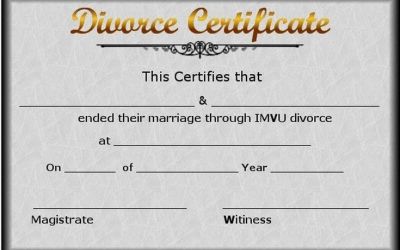Sharia Marriage Rules in the UAE: A Complete Overview for 2025 Couples
Table of Contents ▼
How prepared are you for the marriage process? The new Sharia rules in 2025 may surprise you.
The marriage process in the UAE, particularly for Muslims, is governed by Sharia marriage rules, which ensure that the marriage is both legally binding and religiously recognized. In 2025, there have been several changes to these rules, and staying up-to-date is crucial for couples planning their wedding.
In this blog, we break down the most important Sharia marriage rules you need to know in 2025, from the required documentation to changes in the marriage process.
Understanding Sharia Marriage Rules in the UAE
The UAE follows a dual legal system, where Sharia marriage rules govern personal status issues such as marriage, divorce, inheritance, and child custody for Muslim citizens and residents. These rules are rooted in Islamic law and are designed to provide both spiritual and legal protection for couples entering into marriage.
Marrying under Sharia marriage rules means that the marriage is recognized by the state and aligns with Islamic principles, offering legal recognition and protection. The process includes specific procedures and documentation to ensure the marriage is valid both under Sharia law and UAE civil law.
Key Requirements for Sharia Marriage in 2025
Essential Documents You’ll Need
Marriage under Sharia marriage rules requires specific documentation that must be submitted to ensure legal and religious recognition. Missing or incomplete documents can cause delays, so it’s essential to have everything in order:
For UAE Nationals:
- Emirates ID
- Family Book (Khulasat al-Qaid)
- Medical fitness certificate
- Pre-marital screening certificate
- No-objection certificate from the family court (if previously married)
For Expat Muslims:
- Valid passport with UAE residence visa
- Attested birth certificate
- Certificate of no impediment to marriage from home country
- Medical fitness certificate
- Pre-marital counseling certificate
- Salary certificate or employment letter
Age and Consent Requirements
According to Sharia marriage rules in the UAE, both parties must be at least 18 years old to marry. In specific circumstances, exceptions can be made with court approval.
Mental capacity and free consent are essential requirements. Both parties must fully understand and agree to the marriage. For first-time brides under 25, parental consent is often required, ensuring family involvement in the decision-making process.
Recent Updates to UAE Sharia Marriage Laws
2025 Legislative Changes
The UAE has made significant updates to Sharia marriage rules in 2025. These changes aim to streamline the process, enhance protections for both spouses, and ensure that the marriage process is modern and efficient while still adhering to Islamic principles.
Some of the key changes include:
- Expanded pre-marital counseling: Counseling is now more comprehensive, including not only emotional readiness but also practical discussions on finances, conflict resolution, and family planning.
- Simplified documentation requirements: Certain documents and steps in the process have been simplified to reduce the paperwork burden and make the process more efficient.
- Increased protection for spouses: There are now clearer legal protections for both parties, particularly regarding divorce, inheritance, and rights within the marriage.
Digital Integration and Processing
The UAE has moved towards digitizing the marriage process, and in 2025, couples can submit documents, track their application status, and book appointments through online platforms. This digital shift streamlines the entire process and ensures transparency, making it easier for couples to manage their marriage applications and stay informed.
The Marriage Contract Process
Nikah Ceremony Requirements
The Nikah ceremony must be conducted by an authorized Islamic marriage officer (Ma’zoun). The ceremony itself involves several critical steps:
- Presence of two male witnesses or one male and two female witnesses
- Recitation of marriage contract terms in Arabic
- Agreement on mahr (dower) amount
- Signatures from both parties and witnesses
The mahr is a vital part of the marriage contract, representing the husband’s financial responsibility to the wife. The amount must be agreed upon before the ceremony, and it can be either immediate or deferred.
Court Registration
After the Nikah ceremony, the marriage must be registered with the local Sharia court within 30 days. This step is essential to ensure that the marriage is legally recognized under UAE law.
Once the court reviews and verifies the documents and ceremony details, they will issue an official marriage certificate. This certificate is necessary for a variety of legal processes, such as visa applications, property purchases, and child registration.
Financial Obligations and Rights
Understanding Mahr and Financial Responsibilities
In Sharia marriage rules, mahr is an essential financial commitment made by the husband to the wife. It serves as a symbol of the husband’s commitment and as financial security for the wife. Mahr can be paid immediately, deferred, or a combination of both.
In addition to the mahr, husbands are responsible for providing nafaqah (maintenance), housing, and medical care for their wives. These financial obligations are legally enforceable under the UAE’s legal framework.
Property and Asset Considerations
Under Sharia marriage rules, each spouse retains ownership of property they brought into the marriage and property acquired individually during the marriage. However, gifts between spouses and jointly acquired property are subject to Islamic guidelines.
It’s important for couples to clarify these matters before marriage to avoid confusion or disputes later on.
Rights and Obligations Under UAE Sharia Marriage Rules
Spousal Rights and Responsibilities
Marriage under Sharia marriage rules creates a mutual set of rights and obligations. Husbands are responsible for providing financial support, including maintenance, housing, and medical care. Wives are entitled to respectful treatment, financial support, and personal autonomy, all within the context of Islamic law.
Both spouses share responsibilities for raising children, making joint decisions about family matters, and maintaining their relationship. The UAE courts actively protect these rights, intervening when necessary to uphold fairness and justice.
Child Custody and Parental Rights
Child custody in the UAE is governed by Sharia marriage rules. The courts prioritize the best interests of the child, taking into account factors like emotional well-being, stability, and educational opportunities. Recent updates to the rules have reinforced this focus on the child’s well-being.
Special Circumstances and Considerations
Interfaith Marriage Considerations
According to Sharia marriage rules, Muslim men can marry women from other Abrahamic faiths (Jews and Christians), though additional documentation and processes are required to ensure legal recognition.
For Muslim women, marriage to a non-Muslim man is only permitted if the husband converts to Islam before the marriage can proceed under Sharia law.
Second Marriage Procedures
Polygamy is allowed under Islamic law, but the husband must meet specific conditions. In the UAE, the husband must prove his financial capability to support multiple wives and demonstrate that he can treat them equally. The UAE courts carefully review second marriage applications to ensure that all conditions are met.
Practical Steps for Your Sharia Marriage
Timeline and Planning
Plan your Sharia marriage at least 2-3 months in advance to allow time for document attestation, medical screenings, and scheduling court appointments. This planning helps avoid any last-minute delays.
Choosing the Right Ma’zoun
Choose a Ma’zoun who is authorized and experienced in handling marriages similar to yours. The right Ma’zoun will ensure that the ceremony is conducted smoothly and in accordance with Sharia marriage rules.
Common Challenges and Solutions
Document Attestation Issues
Document attestation, especially for international documents, can take time. Work with a trusted attestation service to ensure that all necessary documents are properly verified and accepted.
Language Barriers
All official procedures are conducted in Arabic, so it’s crucial to arrange for certified translation services if necessary. Hiring a translator or bringing an Arabic-speaking friend to appointments can help ensure everything is communicated clearly.
Conclusion
Understanding the Sharia marriage rules in the UAE is essential for couples who wish to marry under Islamic law. By staying informed about the latest updates and requirements, you can ensure that your marriage process is smooth and legally recognized.
For professional guidance and support through the entire process, visit Easy Wedding today to start your Sharia marriage journey with confidence.


